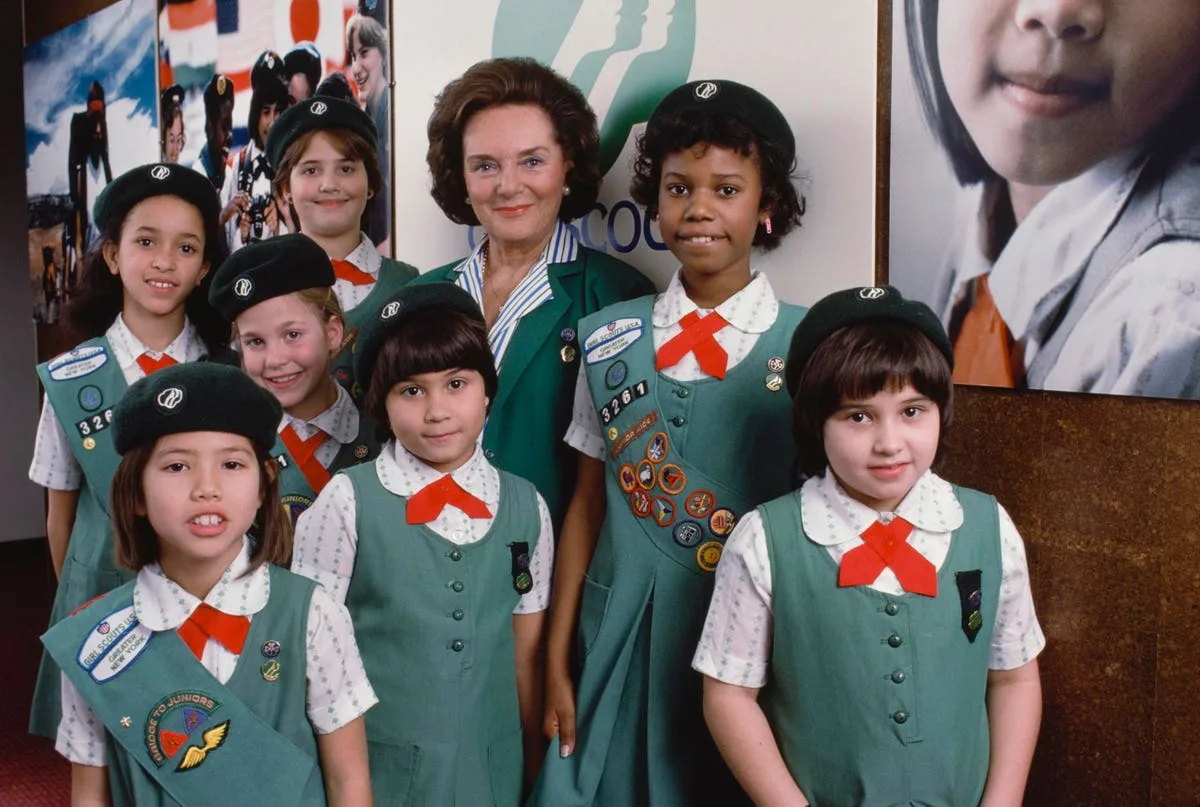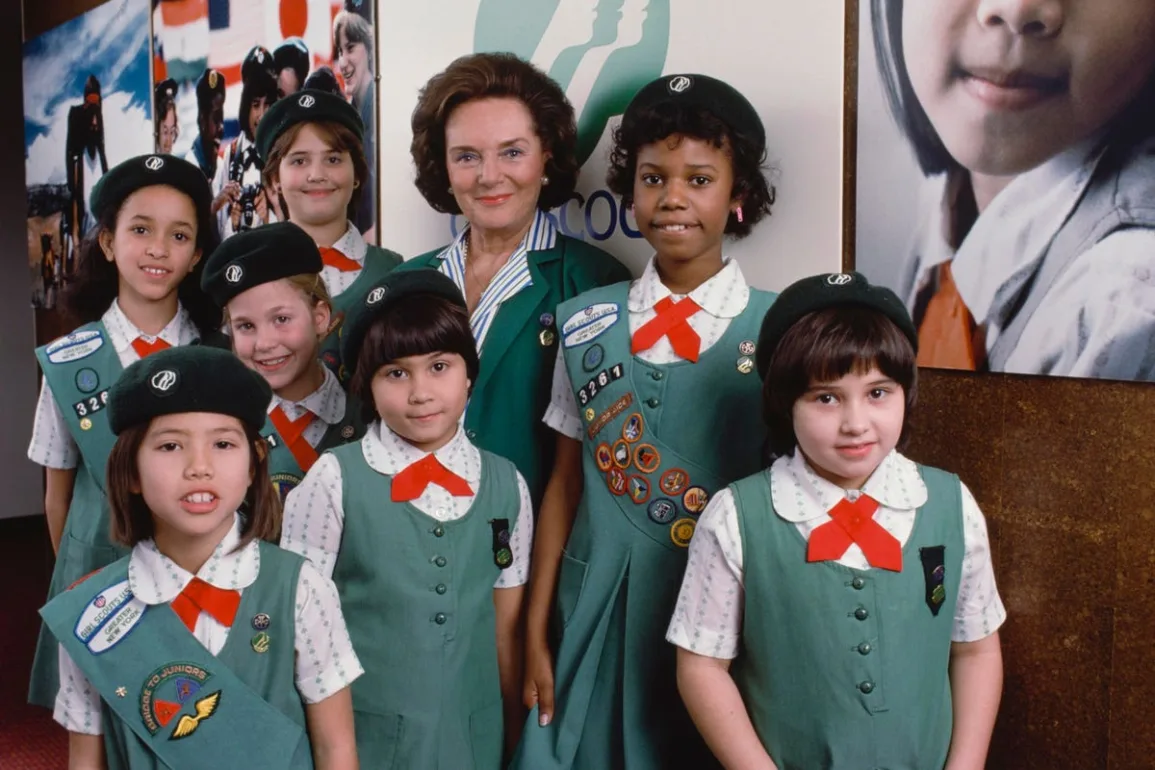
When businesses and our military work together to address the challenges with recruiting in our armed forces, both will benefit. Why is this important? In the words of Francis Hesselbein, former CEO of the Girl Scouts, awarded the Presidential Medal of Freedom and who passed away last year at the age of 107, the two institutions that have sustained our democracy from the very beginning are public education and the United States military. Today, both are under pressure, and American businesses can help.
In 2005 after the Army failed its mission, I had the opportunity to lead U.S. Army Recruiting. During my nearly four years in command, the Army was able to accomplish its mission of recruiting 80,000 soldiers each of my first three years and subsequently the 65,000-soldier mission in my final year. Now, the environment is much more challenging. Last year, the Army failed to achieve its 65,000-soldier mission by 25% or 15,000 soldiers short. To put that into perspective, 15,000 soldiers add up to the size of a U.S. Army division. The Army has ten combat divisions, and the Army failed to recruit the equivalent of an entire division. That is not a good sign for our country. Many veterans go on to serve in corporations throughout America, so businesses benefit from a strong recruiting program in our military.
World War I recruiting poster. Uncle Sam admonishes, “I WANT YOU FOR U.S. ARMY.” Undated painted … [+]
There are a variety of challenges for recruiting that will not be easily solved in the near term. Many young people and their parents feel that by choosing to serve their country, they are delaying college and the opportunity to start their career. But within the services, young people are constantly trained, educated, and developing skills that are in high demand in the private sector. Organizations like CSX Transportation and many others hire service members who bring qualities such as leadership, discipline, loyalty, teamwork, courage, competence, and commitment. These qualities are making a difference for private sector companies that hire veterans. At CSX, one out of every five of its 22,000 employees is a veteran or first responder. Other corporations like Fidelity Investments, Google
GOOG
BA
Last month, the United States celebrated the 50th Anniversary of the All-Volunteer Force, and the 75th Anniversary of President Harry S. Truman’s Executive Order (EO) 9981 which integrated the military. Following the end of WWII, President Truman was outraged at how African Americans were treated after returning from war. President Truman’s EO 9981 integrated the military. From that time forward, white soldiers from Alabama and black soldiers from Brooklyn would share barracks, the same foxhole, fight, and sometimes die together. African Americans, Asian Americans, Hispanics, other service members of color, and the entire military have benefited greatly from the integration of our Armed Forces.
My father, Master Sergeant Sidney C. Bostick, an African American, was orphaned when he was 8 years old after his parents passed away. He lived in Brooklyn, N.Y. and moved from foster home to foster home, until he had the opportunity to enlist in the Army. Although he joined a segregated Black unit, my father realized that the Army provided him with opportunities that he could not find elsewhere in America. Later in his career, my father became a mechanic and took those skills and his leadership directly into a similar role in the private sector.
The integration of our military gave my father and so many other service members like him the chance to achieve success in an organization where they were now judged based on their merit and not by the color of their skin. However, recognizing that merit took time and required the sacrifice and heroism of many service members of color in earlier wars. One example is Sergeant Henry Johnson.
Earlier this year, I was at the formerly named Ft. Polk, Louisiana. It was renamed Ft. Johnson, after Sergeant Henry Johnson.
Renaming of Fort Polk to Fort Johnson after Sergeant Henry Johnson, Medal of Honor Recipient from … [+]
Prior to World War I, Henry Johnson made his living as a railroad porter in Albany, New York. For Johnson, the railroads were an opportunity. Despite the opportunity, Johnson wanted to serve his country and enlisted in the U.S. Army on June 5th, 1917. He was assigned to the 369th Infantry Regiment, an African-American unit, later nicknamed the “Harlem Hellfighters.” The French wanted help from the U.S. Army, and General Pershing offered the French the 369th Infantry Regiment. The 369th spent 191 days in combat, longer than any other American unit in WWI. The French fully employed the 369th into their operations and they served with distinction on the Western Front; Black Americans wearing French uniforms served at the tip of the spear in the final spring of WWI.
View of African American troops of the 369th Infantry, formerly the 15th Regiment New York Guard, … [+]
Late into the evening of 14 May 1918, Johnson and a fellow soldier were on sentry duty in the Argonne Forest. At about two o’clock in the morning, a 20-man German raid party attacked the sentry position. Johnson threw grenades and fired his rifle until he was out of ammunition. He observed two Germans about to carry away his wounded comrade at which point Johnson used his knife to fight off the attackers. Ultimately, Johnson single-handedly fought off twenty attackers while sustaining 21 separate wounds in hand-to-hand combat. His acts of valor earned him the nickname of “Black Death”, and his bravery encouraged many other African Americans to serve. Johnson became the first American soldier to ever receive the French Croix de Guerre for his heroic actions. When Johnson returned home, he was not provided the same benefits as white soldiers and was unable to work due to his injuries. Johnson died, poor and in obscurity, in 1929. In recent decades, Johnson received his rightful place in history when he was awarded the purple heart in 1996 and the Distinguished Service Cross in 2002, which was later upgraded to the Medal of Honor and in 2015 was posthumously presented by President Barrack Obama.
WASHINGTON, DC – JUNE 02: U.S. President Barack Obama presents a Medal of Honor to Command Sergeant … [+]
Men and women like my father, warriors like Henry Johnson, and like the veterans of today, are not raising their hand to serve in our military in the numbers as they did in the past. Some young people do not appreciate how military education and training will serve them well in the private sector. Young people rarely hear first-hand from veterans about how their military experience and education benefited private sector companies. Private sector companies that hire our military and showcase how veterans are contributing to their companies could have a significant impact on the military recruiting effort and help create a pipeline of veteran talent eager to serve in their organizations in the future.
On 26 July, at Howard University, Blue Star Families (BSF), a non-profit, hosted an inspiring event to commemorate the 75th Anniversary of the integration of the Armed Forces. The Secretary of the Department of Veterans Affairs Denis McDonough and Secretary of the Navy Carlos Del Toro spoke at the event. In addition, the Howard University audience was treated to a special guest speaker, actor Morgan Freeman, an Air Force Veteran.
Actor Morgan Freeman, an Air Force Veteran, speaking at Howard University on July 26, 2023 at the … [+]
As members of the Howard University ROTC program presented the colors, I thought about the positive impact that this event had on the young people in the audience who might one day consider serving their country in the military.
Howard University ROTC Honor Guard presenting the colors
Another non-profit, American Corporate Partners (ACP) works with corporations to provide mentors to assist veterans as they transition from the military into the private sector. Though the pay and benefits of young, enlisted soldiers is comparable to their civilian counterparts, many spouses in America are working outside the home today. With so many moves in a military career, employment is more challenging for military spouses. ACP also has a spouse mentorship program. This important program also helps the military recruiting and retention efforts. Corporations can partner with ACP to provide mentors for both veterans and their spouses.
There are no easy solutions to address the military recruiting challenge, but we each have a role. It will take everyone working together with the knowledge that we are a significant part of what makes our country and our military strong. The military is one of the two institutions that has sustained our democracy. The military relies on a strong public education system. By supporting the military recruiting mission and public education, businesses are investing in their future, and strengthening the foundation of our democracy. Working together we will secure another fifty years of the All-Volunteer Force and ensure our Armed Forces and American Businesses remain the best in the world.



